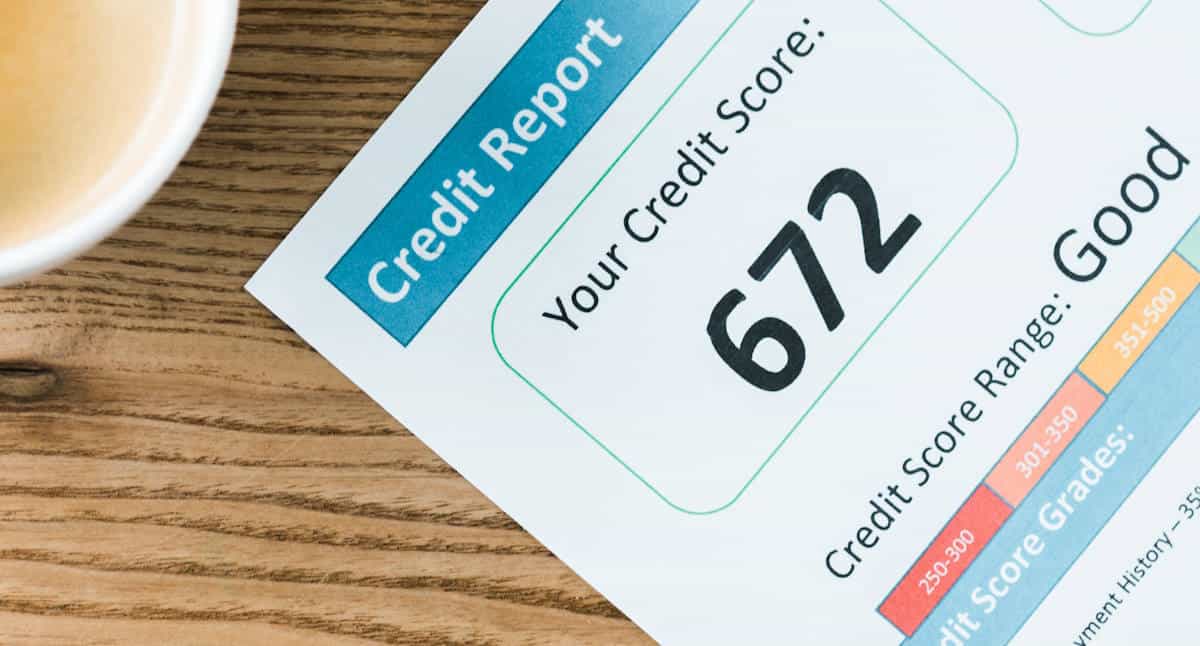Your credit rating is more than just a number.
It’s a reflection of your financial health and a key factor lenders consider when you apply for a mortgage.
A good credit score can give you access to the best mortgage products and interest rates, making it easier to achieve personal and financial goals.
Whether you’re looking to buy a home, finance a car, or simply want to ensure you’re getting the best possible terms on credit, improving your credit rating is an essential first step.
What Is A Credit Score?
A credit score is a numerical representation of your creditworthiness and financial reliability, used by lenders to assess the risk of lending to you.
It is calculated based on various factors, including your repayment history, the amount of debt you have, and the length of your credit history.
In the UK, the three main credit reference agencies, Experian, Equifax, and TransUnion each have their own scoring systems.
A good credit rating is essential for anyone looking to borrow money or access financial products.
How a Good Credit Score Increases Your Chances of Mortgage Success
Securing a mortgage for your first home demands a solid credit history, that demonstrates your reliability as a borrower.
Lenders scrutinize credit scores to determine the risk level of lending, which can impact a mortgage application in various ways:
- Determines eligibility: A good credit score is essential for mortgage approval. Lenders use credit scores to assess the risk of lending to an applicant. A higher score indicates lower risk and increases chances of approval.
- Affects interest rates: Applicants with higher credit scores are more likely to qualify for lower interest rates on mortgages. This can lead to significant savings over the life of the loan.
- Impacts deposit requirements: While not directly affecting credit scores, having a larger deposit can improve mortgage applications by reducing the loan-to-value ratio. This is especially helpful for those with lower credit scores.
- Determines lender options: A higher credit score gives applicants access to a wider range of lenders and mortgage products. Those with poor credit may be limited to specialist lenders.
- Affects approval chances: Even with impaired credit, mortgage approval is possible, but it depends on factors like the type of credit issues, how recent they are, and whether they’re resolved.
- Influences loan terms: A good credit score can help secure better borrowing terms.
- Influences borrowing amount: Credit scores, along with income and existing commitments, determine how much an applicant can borrow.
- Impacts overall application strength: A good credit score strengthens the overall mortgage application, potentially offsetting other weaker areas.
- Affects speed of approval: Applications with good credit scores may be processed more quickly, as they require less scrutiny.
- Determines need for specialist advice: Those with lower credit scores may benefit from seeking advice from mortgage brokers, who can access a wider range of lenders, including those specializing in applicants with credit issues.
Therefore, planning to buy your first home involves not just saving for a deposit, but also optimising your credit score well in advance of the application.
Credit Score Ranges
Understanding where your credit score falls can help you gauge your mortgage prospects.
Here’s a table outlining the scores and classifications of each UK credit rating agency:
| Credit Reference Agency | Score Range | Classification |
|---|---|---|
| Equifax | 0 – 1,000 | Poor: 0 – 438 |
| Fair: 439 – 530 | ||
| Good: 531 – 670 | ||
| Very Good: 671 – 810 | ||
| Excellent: 811 – 1,000 | ||
| Experian | 0 – 999 | Very Poor: 0 – 560 |
| Poor: 561 – 720 | ||
| Fair: 721 – 880 | ||
| Good: 881 – 960 | ||
| Excellent: 961 – 999 | ||
| TransUnion | 0 – 710 | Very Poor: 0 – 550 |
| Poor: 551 – 565 | ||
| Fair: 566 – 603 | ||
| Good: 604 – 627 | ||
| Excellent: 628 – 710 |
Common Credit Rating Myths
There are several misconceptions about credit scores that can lead to confusion:
Universal Credit Score
Many believe there is a single, universal credit score. In reality, each credit reference agency calculates scores differently, and lenders use their own criteria to assess applications.
Credit Blacklist
There is no such thing as a credit blacklist. Lenders make decisions based on their own criteria and the information in your credit report.
How to Check Your Credit Rating
Understanding your current credit position starts with reviewing your credit report. It’s the first step to identifying areas for improvement.
How to Access Your Credit Report for Free
You can access your statutory credit report for free (usually as a trial period i.e. 30 days, after which you may be charged a subscription), which gives you a snapshot of your credit history.
This report is available from major credit bureaus and can be requested online for free, helping you understand your financial standing without any cost.
Identifying and Correcting Errors on Your Report
It’s crucial to check your credit report for errors. Mistakes can unfairly lower your credit score, so identifying and correcting them is key.
Disputing Errors with Credit Bureaus
If you find inaccuracies on your credit report, you can dispute these errors directly with the credit bureaus.
Correcting errors can lead to an immediate improvement in your credit score. This is because the corrected information presents a more accurate picture of your creditworthiness to potential lenders.
Top 10 Ways to Improve Your Credit Score
1. Check Your Credit Report Regularly
Start by obtaining your credit report from the three main credit reference agencies in the UK:
Each agency may have slightly different information, so it’s crucial to check all three to get a comprehensive view of your credit status.
You can access your credit report directly with each agency or through services like Check My File, Clear Score and Credit Karma.
Regularly reviewing your credit report helps you spot any errors or fraudulent activities that could negatively impact your score.
2. Register on the Electoral Roll
Being on the electoral roll helps confirm your identity and address to lenders, which can improve your credit score.
If you’re not registered, visit the Gov.uk website to register at your current address. This simple step can make a significant difference, as lenders use this information to verify your identity and reduce the risk of fraud.
3. Pay Your Bills on Time
Consistently paying all your bills, including credit cards and utilities, on time is crucial.
Late payments can significantly harm your credit score. Consider setting up automatic payments to avoid missing due dates.
This demonstrates to lenders that you are reliable and can manage your financial obligations responsibly.
4. Keep Your Credit Utilization Low
Credit utilization is the percentage of your credit limit that you use.
Aim to keep this below 30%. For example, if your credit card has a limit of £10,000, try not to use more than £3,000 at any time.
This shows lenders that you are not overly reliant on credit, which can make you appear as a lower risk.
5. Limit New Credit Applications
Avoid making multiple credit applications in a short period, as each application can result in a hard inquiry on your credit report, which can lower your score.
Space out your credit applications to maintain a healthy credit profile.
Using eligibility calculators can help you assess your chances of approval without affecting your credit score.
6. Build a Credit History
If you have little or no credit history, consider using a credit builder card or becoming an authorized user on someone else’s card.
This can help establish a credit history, which is important for first-time buyers.
Regular, responsible use of credit can demonstrate to lenders that you can manage credit effectively.
7. Keep Old Credit Accounts Open
Maintain old credit accounts to show a long credit history, which can positively impact your credit score.
Lenders like to see that you can manage credit over a long period. Closing old accounts can increase your credit utilization ratio, which might negatively impact your score.
8. Avoid Financial Associations with Poor Credit
Be cautious about joint accounts or financial associations with individuals who have poor credit, as this can affect your credit score.
If you have previously shared finances with someone, ensure you de-link your financial association if you are no longer connected.
9. Save for a Larger Deposit
While not directly effecting your credit score, saving for a larger deposit can improve your mortgage application by reducing the loan-to-value ratio.
This makes you a more attractive borrower to lenders. A larger deposit can also help you secure better interest rates.
10. Seek Professional Advice
Consider consulting with a mortgage broker for tailored advice and access to a wider range of lenders.
Brokers can help you navigate the complex home-buying process and find the best mortgage deal for your circumstances.
They can also provide insights into how lenders assess applications and what you can do to improve your chances.
Conclusion: Start Early and Stay Consistent
Improving your credit score takes time and consistent effort, so start as early as possible.
By following these tips, you can enhance your creditworthiness and increase your chances of securing a favourable mortgage deal.
Ready to Take the Next Step?
By implementing these strategies, you’ll be well on your way to improving your credit score and achieving your dream of homeownership. Remember, patience and persistence are key, and with the right approach, you can make your home-buying journey a success.
If you’re ready to take the next step towards buying your first home, take the Mortgage Ready Quiz to assess your readiness and get personalized advice on how to proceed.



